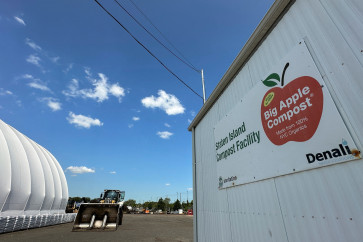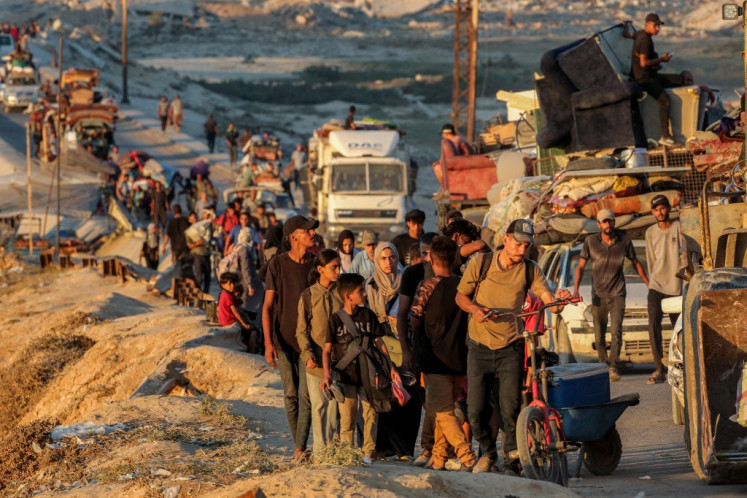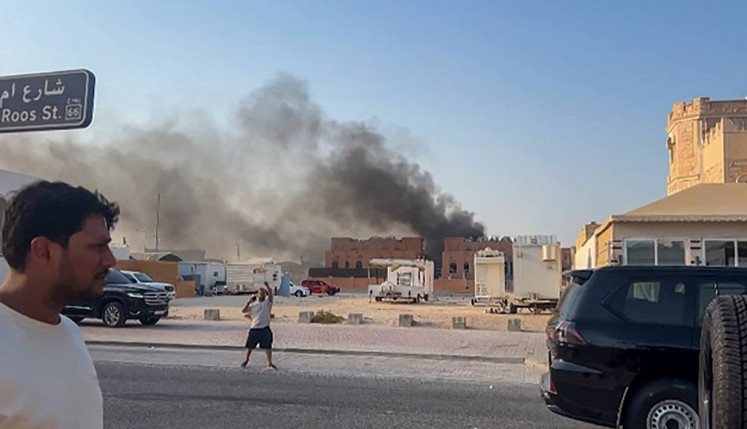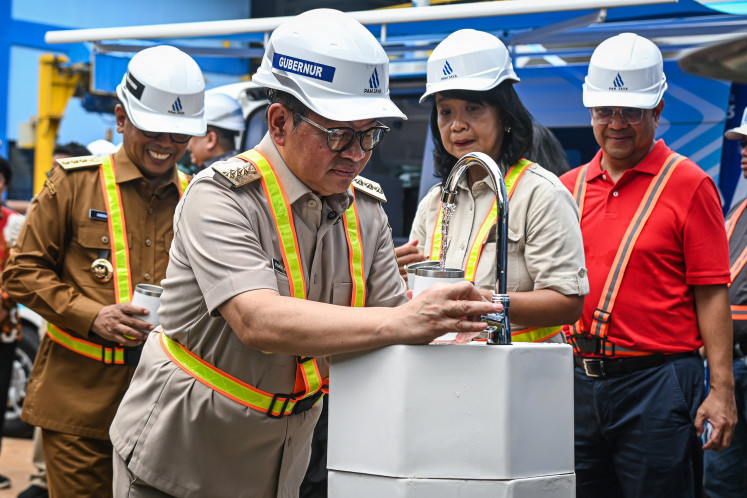Popular Reads
Top Results
Can't find what you're looking for?
View all search resultsPopular Reads
Top Results
Can't find what you're looking for?
View all search resultsMandatory Muslim attire for S. Tangerang administration
The South Tangerang administration will soon oblige all Muslim civil servants to wear Muslim attire on Fridays to recognize what the mayor calls the religious identity of the municipality
Change text size
Gift Premium Articles
to Anyone
T
he South Tangerang administration will soon oblige all Muslim civil servants to wear Muslim attire on Fridays to recognize what the mayor calls the religious identity of the municipality.
'We have long planned to require all [Muslim] civil servants to wear Muslim attire every Friday so that the municipality's religious nuance can be observed in all administration offices,' Mayor Airin Rachmi Diany said on Wednesday.
'South Tangerang claims to be religious but what evidence do we have to show visitors to support that claim?'
She added that non-Muslim civil servants would be excluded from the future policy and that municipal secretary Dudung S. Direja was conducting a study prior to its implementation.
She said male civil servants would wear baju koko (high-collared, long-sleeved shirts) and peci (traditional black velvet caps) and females would don a headscarf, red baju kurung (traditional long dress) and long white skirts or pants.
But she said staff would be free to choose whatever motifs or styles they were comfortable with.
'Many female civil servants here already wear Muslim attire every day even before the policy is implemented. So, I don't think there will be opposition to the policy as long as it's a good one,' Airin said.
The idea to oblige civil servants to wear Muslim attire was first raised by former Tangerang mayor Wahidin Halim in 2003. State school students and civil servants in Tangerang municipality are required to wear Muslim attire.
In response to the South Tangerang administration's planned policy, political observer Ray Rangkuti said it was just another administration strategy to distract public attention from real problems that the administration was failing to deal with.
'The more serious problems the administration needs to overcome are poor public services, poor road infrastructure, unequal development programs and corruption ' all of which are still the main subjects of public complaints,' he told The Jakarta Post.
He said development in the municipality had been uneven, citing rapid economic growth in areas like Bumi Serpong Damai, Bintaro and Alam Sutra, where high-scale housing complexes were built and moderate-to-low development in other areas of the municipality. 'I think it's just a way for the administration to build its image, for the mayor to win people's hearts,' he said.
Similarly, Syarif Hidayatullah State Islamic University (UIN) political observer Zaki Mubarak said it would be better for the administration to instead improve its performance rather than crafting a public image.
'I think what the administration needs right now is more dynamic and more efficient public services,' he said, adding that the policy could potentially backfire as a violation of human rights.










